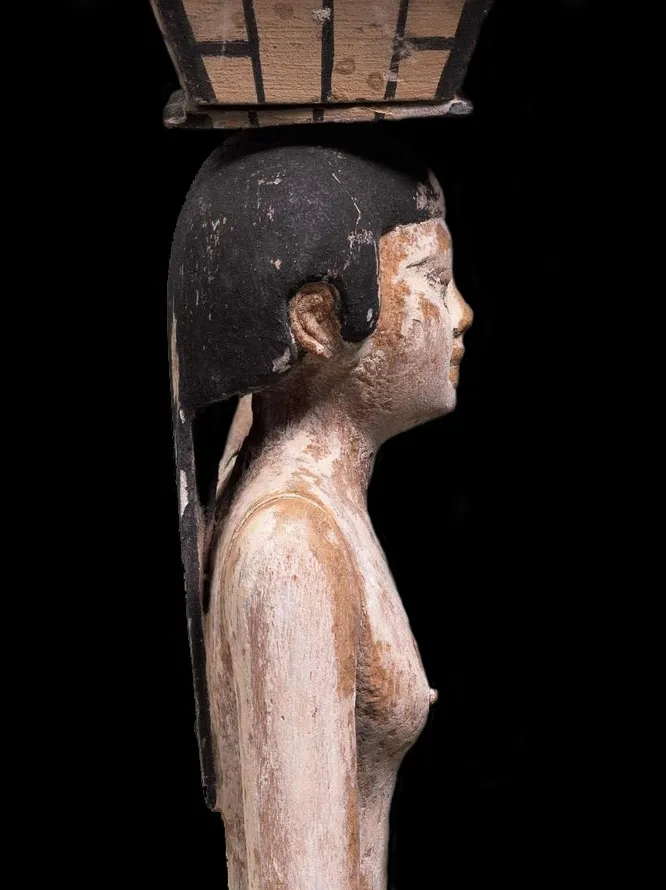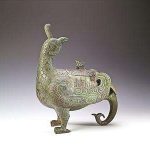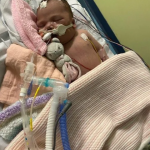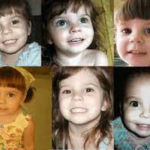Painted Wood Offering Bearers
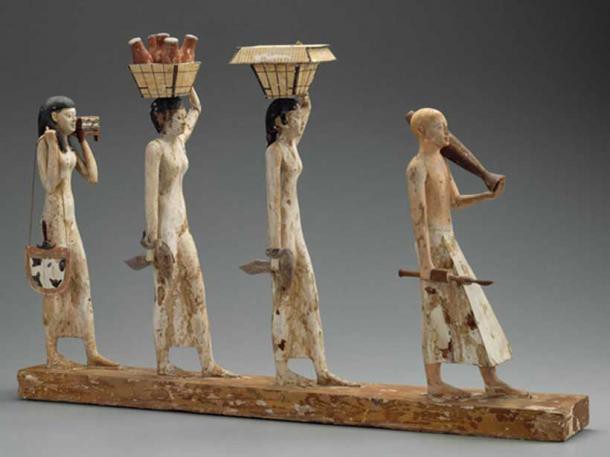
“The Bersha Procession” is one of over one hundred wooden models discovered in the tomb of Djehutynakht at Deir el-Bersha. This finely carved and painted model depicts a funerary procession bringing offerings to honor and sustain the deceased in the afterlife. Leading the group is a priest, who carries a ceremonial wine jar and incense burner for use in burial rituals. Behind him, three women advance gracefully with their left legs forward—a traditional Egyptian artistic convention.

The first woman carries a basket of bread and a duck, while the second brings another duck and a basket filled with beer jars. The third woman offers personal items for Djehutynakht’s afterlife: a small cosmetic chest and a mirror enclosed in an animal-hide case slung over her shoulder. Together, these figures represent all that was needed to sustain the ka of Djehutynakht for eternity—food, drink, adornment, and incense to please both gods and the blessed dead.
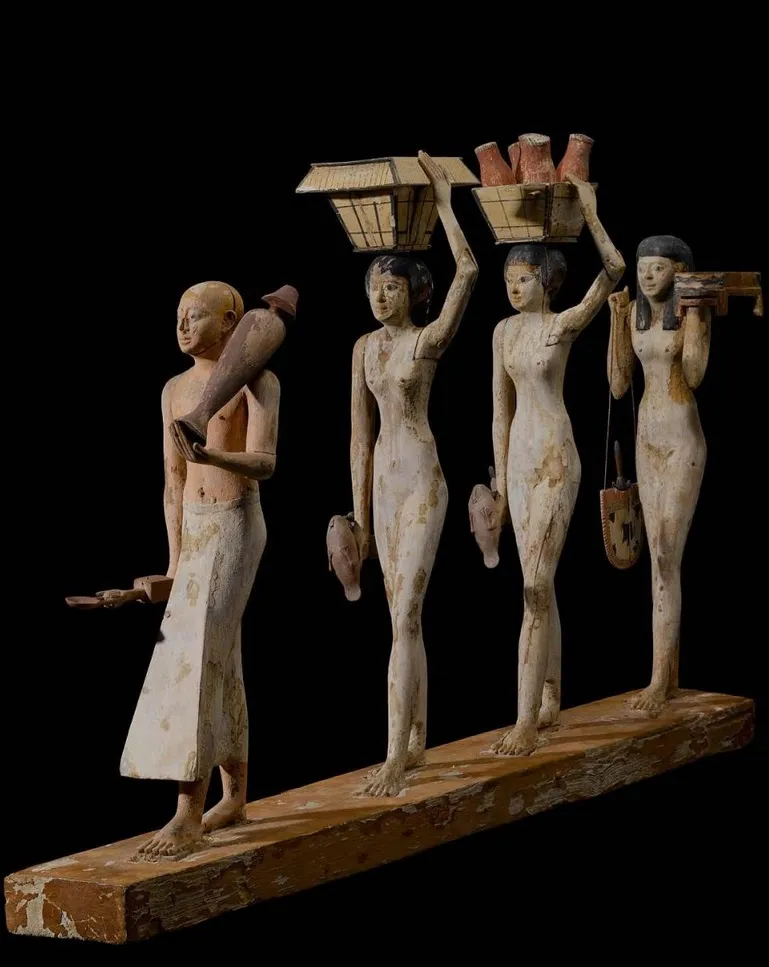
When discovered, the model was found overturned and damaged, lying between Djehutynakht’s coffin and the eastern wall of his burial chamber among a pile of broken wooden figures discarded by tomb robbers. Although the four figures remained connected, many offerings were detached or lost. The model was reconstructed twice—the first time incorrectly in 1941, and later accurately restored in 1987.
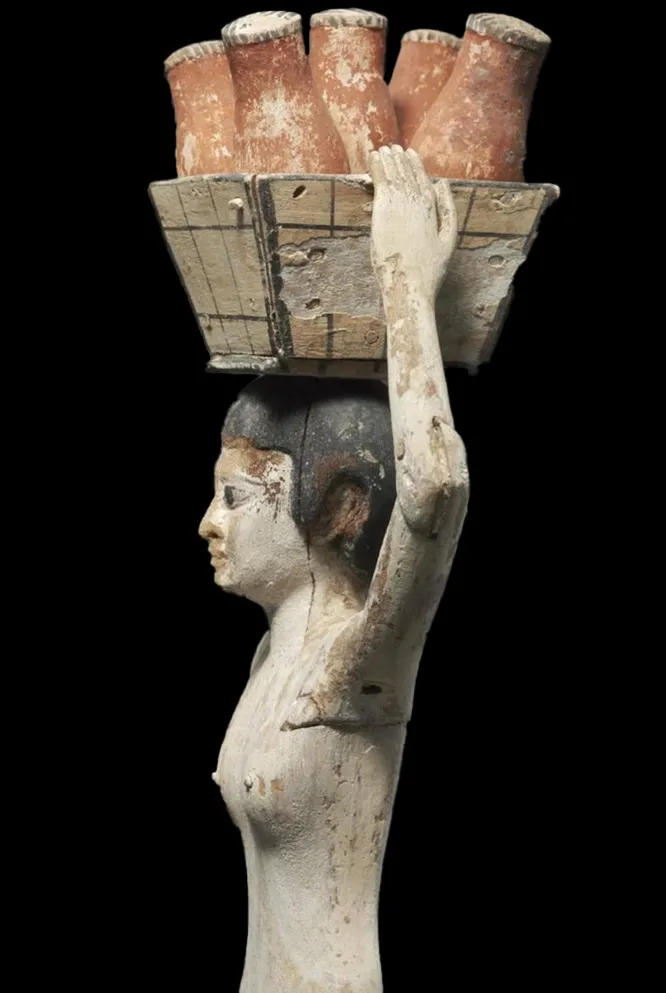
Dating to the Middle Kingdom, 11th Dynasty (c. 2010–1961 B.C.), this exceptional work comes from Deir el-Bersha, Tomb 10, Pit A, and is now housed in the Museum of Fine Arts, Boston (inv. no. 21.326).
